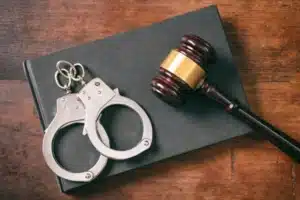
Stop and frisk is a controversial law enforcement strategy that has sparked debates about civil liberties, racial profiling, and public safety. It was formally recognized by the U.S. Supreme Court in the Terry v. Ohio case of 1968.
The purpose of the stop-and-frisk policy is predominately geared towards preventive policing. Officers are permitted – under certain conditions – to stop a person they suspect is involved in illegal activity, question them briefly, and then proceed with a pat-down frisk. However, there must be reason to believe the person might be armed and dangerous.
What Exactly Is a Stop?

A stop occurs when a law enforcement officer temporarily detains you, typically for questioning or investigation connected to possible criminal activity. One determinant of whether it is, in fact, a stop is if a reasonable person would conclude that they’re not free to leave. This typically involves an explicit order or physical intervention by a police officer compelling you to halt your movements.
It’s highly important to note that law enforcement has no blanket authority for such stops. They can only initiate one if there exists “reasonable suspicion” of your involvement in criminal activity. This means it should be based on specific and articulable facts beyond just vague hunches—police officers cannot legally stop you simply because they think you look suspicious without any concrete supporting evidence.
What Is a Frisk?
If, during the stop, further clues lead officers to reasonably suspect that you are armed or pose an immediate threat to safety, they can carry out a superficial pat-down search of clothing for weapons—the frisk.
They are only allowed to pat down the exterior of your clothing in search of weapons. This is performed with the intention of improving officer safety by ensuring you’re not carrying something on your person that could be harmful.
If, while conducting this frisk, the officer identifies something through touch alone that is unmistakably illegal (say, for example, feeling the distinctive shape of an unlawfully concealed weapon), then they may extend their search.
Examples of Reasonable Suspicion
Reasonable suspicion is a legal standard of proof in the United States that a person has been, is, or will be engaged in criminal activity based on specific and articulable facts and reasonable inferences from those facts. Examples include:
- A vehicle is seen driving slowly past businesses repeatedly before finally pulling into the back of a closed business late at night. An officer also sees two other masked men walking in front of the business, motioning to the vehicle as if they are ‘lookouts.’
These actions are not typical for lawful conduct and can reasonably arouse suspicions about potential criminal activities like burglary or vandalism.
- A vehicle is on and parked late at night with its headlights turned off. An officer sees multiple people coming and going from the vehicle, reaching into the front seat window where the driver is sitting. If this happens in areas known for high crime rates, it could suggest illegal activities such as drug deals.
All stops and frisks must adhere to the United States Constitution and cannot violate your right to be free from unreasonable search and seizure.
What if Police Illegally Stop and Frisk You?
If a police officer violates your rights during a stop and frisk procedure, there are legal actions that can be taken:
File a Motion To Suppress
If the police violated your Fourth Amendment rights and then arrested you, your lawyer can file a motion to suppress in an attempt to exclude any evidence gathered during this illegal search from use in court. Without this evidence, charges against a defendant often get dismissed or result in an acquittal.
Civil Rights Lawsuits Against Law Enforcement
In addition to suppressing illegally obtained evidence, victims of unconstitutional stops and frisks may also sue the offending officer(s) or their department under federal civil rights statutes. These claims allow individuals whose constitutional rights have been violated by state actors to pursue compensation.
Every case is unique, and the exact steps that should be taken will depend on the circumstances. Always speak with a lawyer so they can advise you on what to do next.
Contact a West Chester Criminal Defense Attorney
If law enforcement does something that violates your rights and charges are brought against you (or sometimes even if charges aren’t brought), you can speak with an attorney to determine what steps you can take next.
Having a skilled defense attorney will be vital, as they’ll argue your case strongly before a judge. If you need help with any type of criminal matter, contact us to schedule a free consultation with a trusted West Chester criminal defense lawyer.
